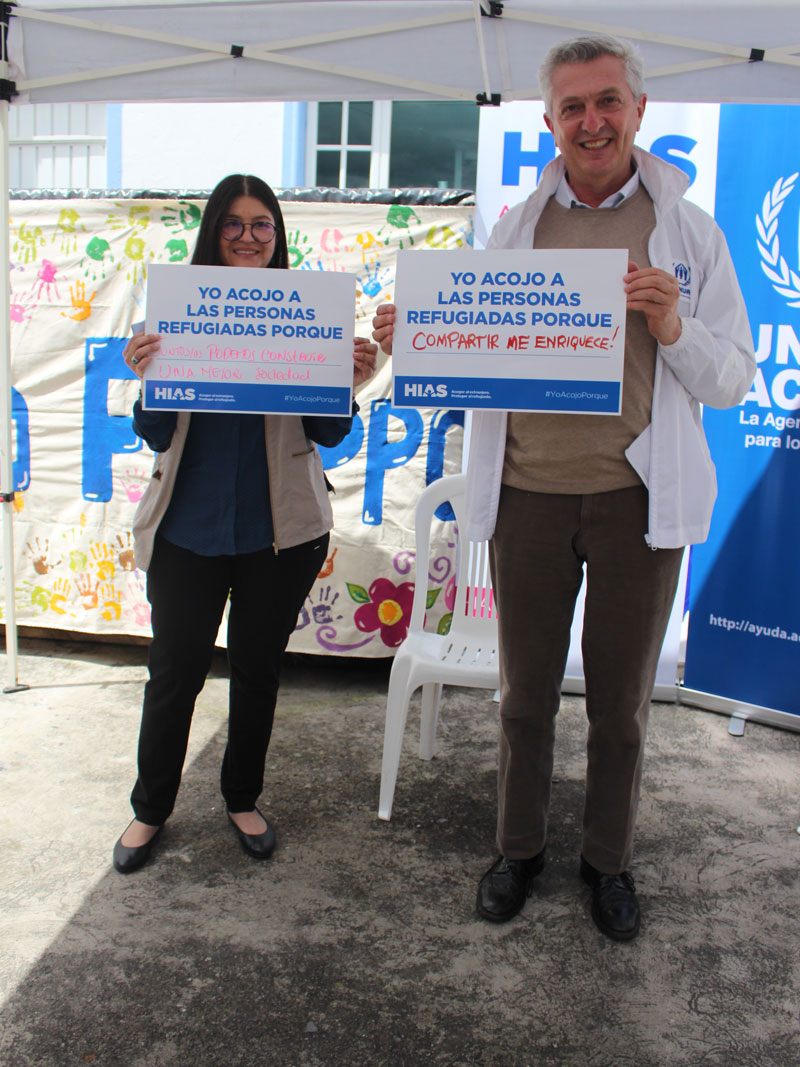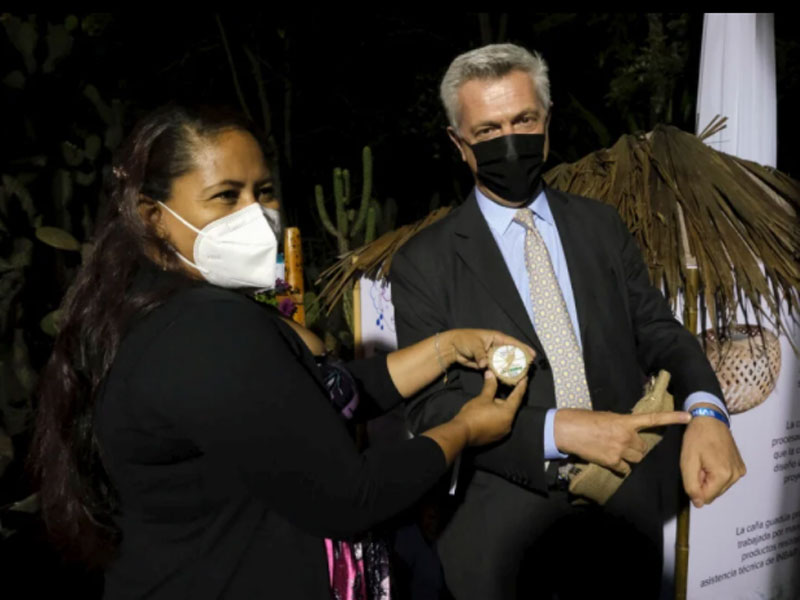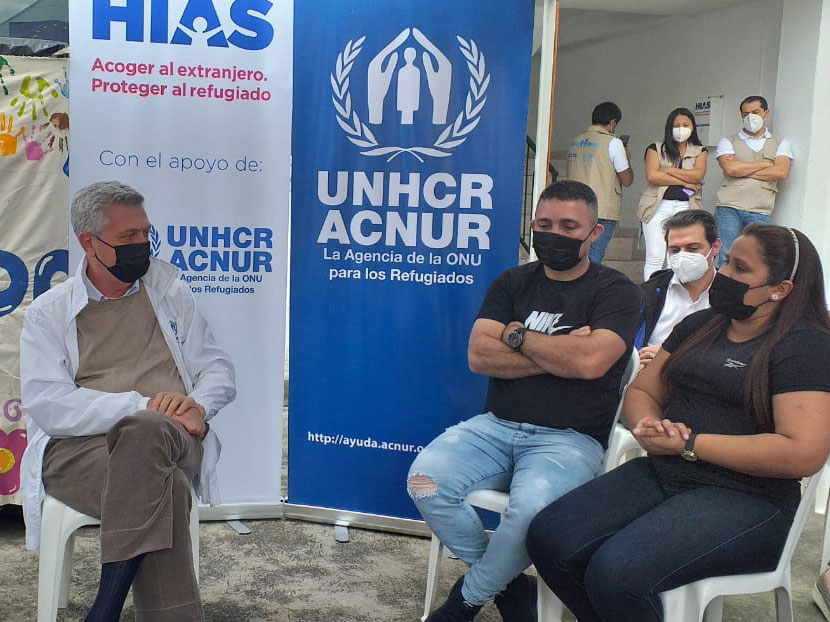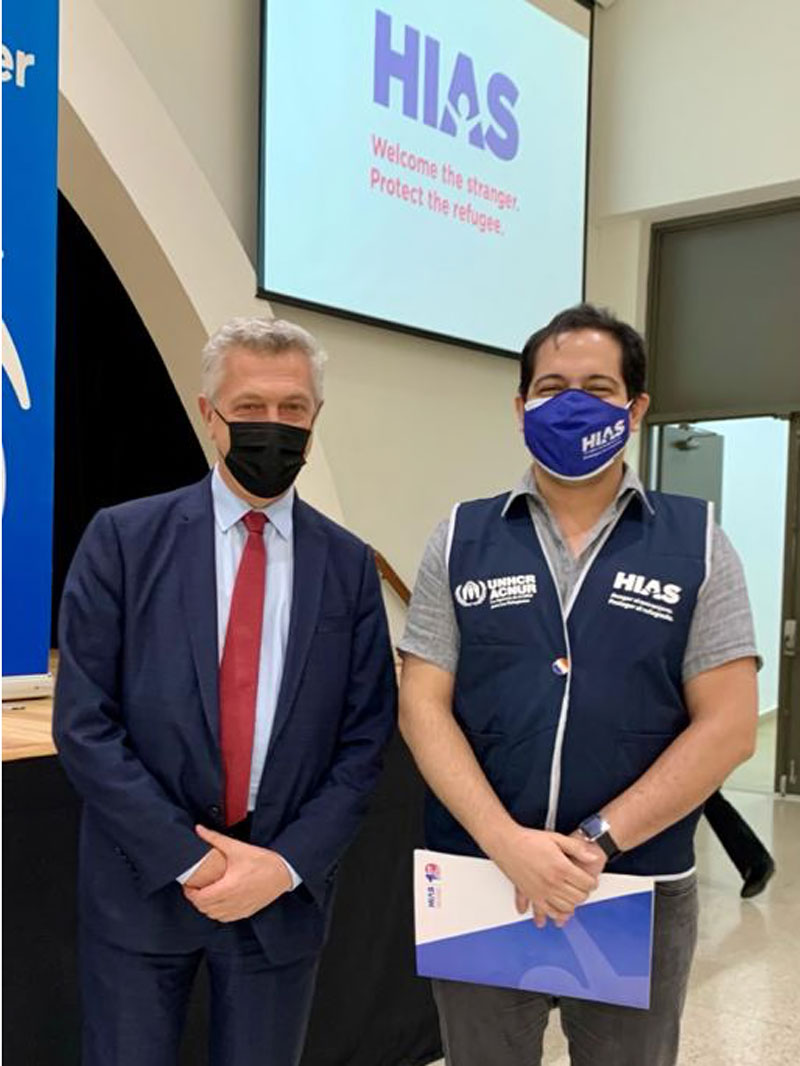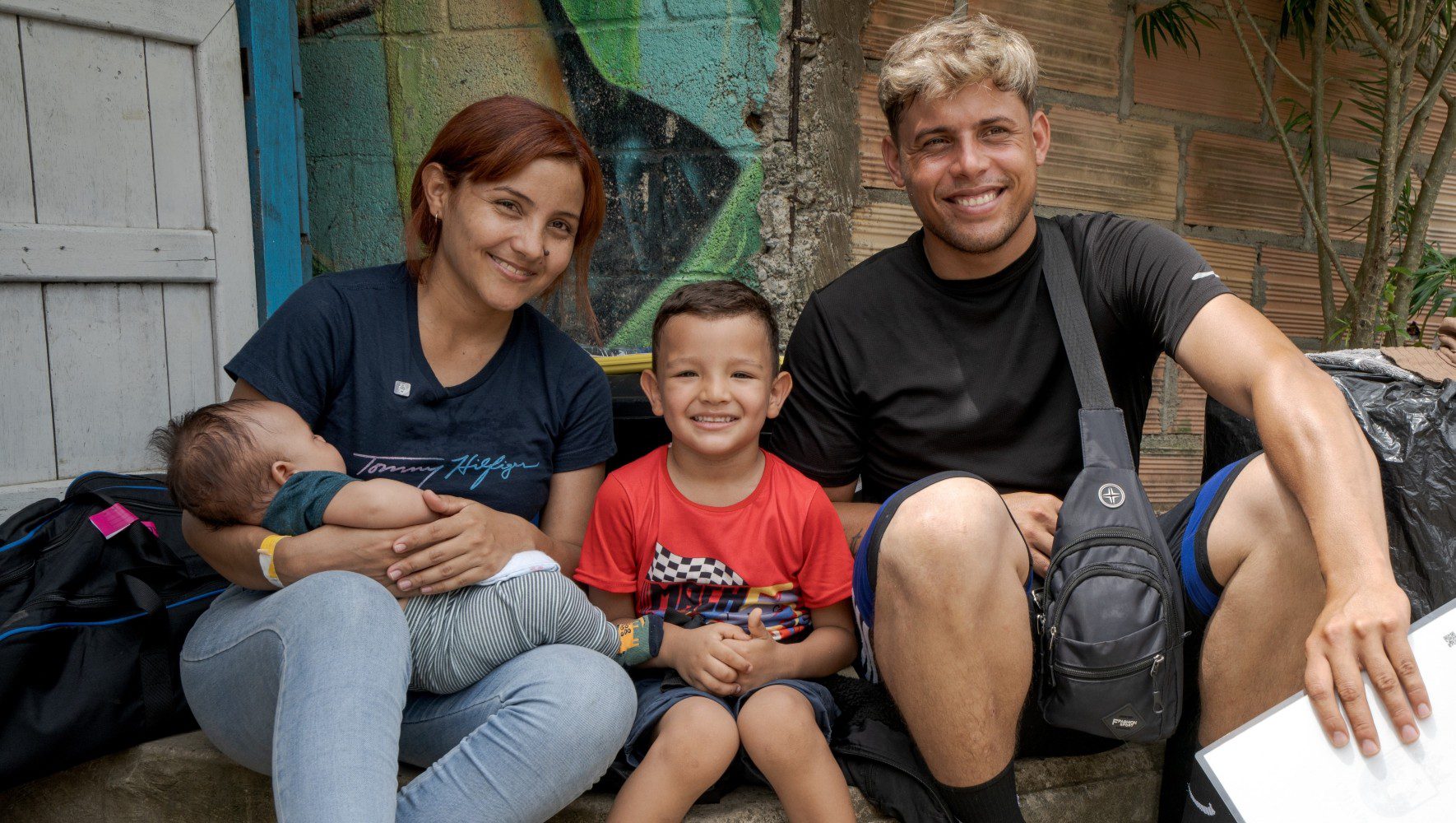A High-Level Visit for HIAS Offices in Panama and Ecuador
By Sharon Samber, HIAS.org
Jun 23, 2021
It’s not often that one of the big names in global refugee affairs comes to town and stops in to talk to a local HIAS office.
But when Filippo Grandi, the United Nations High Commissioner for Refugees, recently visited Panama and Ecuador, HIAS was on his agenda. The UN agency, a frequent HIAS partner in several Latin American countries, is mandated to lead and coordinate international action to protect refugees and resolve refugee problems worldwide.
Grandi did not just stop into HIAS for a quick photo op, but rather took the time to talk to refugees and asylum seekers. In Panama, Grandi met with three asylum seekers and three refugees that HIAS has helped who came from Venezuela, Colombia, and Nicaragua. They talked to Grandi about how they experience xenophobia and the years they have spent waiting for regular status.
“The High Commissioner looked a little shocked when he heard their stories,” said Roberto Mera, HIAS Panama’s country director. Mera believes Grandi understands the importance of supporting asylum seekers’ self-employment through seed capital initiatives and hopes UNHCR will work together with HIAS on more economic inclusion programming in Panama.
In Ecuador, at an event in Quito, refugees displayed their wares, from baked goods to handmade wood crafts. Grandi met a HIAS client from Venezuela, Jazhilmar Baez, who together with six Colombian and Venezuelan refugee women formed a business with the inspiring name of Mujeres Guerreras Maxima Limpieza (Warrior Women Maximum Cleaning). The entrepreneurs sell antibacterial gel, soap, and other hygiene products. The High Commissioner told her that he was thrilled and very proud to see refugee women owning and running their own businesses.
At the Ibarra, Ecuador HIAS office Grandi met with refugee families for about an hour. He talked with HIAS clients María Jose Mercado and José Soto, a Venezuelan couple who are currently limited to selling their artwork at local markets but who, if they had regular status, could sell to shops. Access to documentation was the main concern of all of the refugee families with whom Grandi spoke, and the families agreed on the fact that once they access documentation everything else falls into place. Ecuador recently announced a plan to extend regular status to the nearly 50 per cent of the 430,000 Venezuelan refugees and migrants in the country who currently do not have it, providing a way to full inclusion.
Maricela Parra, HIAS Ecuador’s country director, said that it was very impressive to see how refugee families felt very confident with the High Commissioner. Participants told Parra they felt nervous before they met Grandi. “Once they started talking though, they realized that he is a person that really understands the challenges that they face,” Parra said.
According to UNHCR, Grandi chose to mark World Refugee Day in Latin America as a recognition of the advances made by the region in the protection and inclusion of refugees and other displaced people.
“Countries like Colombia and Ecuador are taking brave and bold steps to leverage the full potential of refugees and others displaced,” Grandi said. “Latin American countries are an example to the world on how to protect people.”
